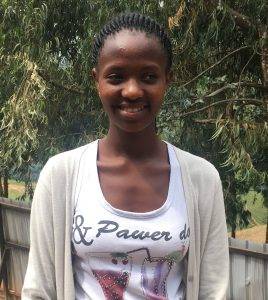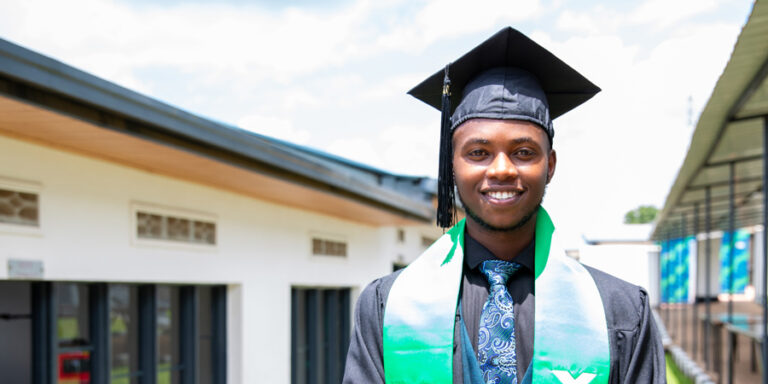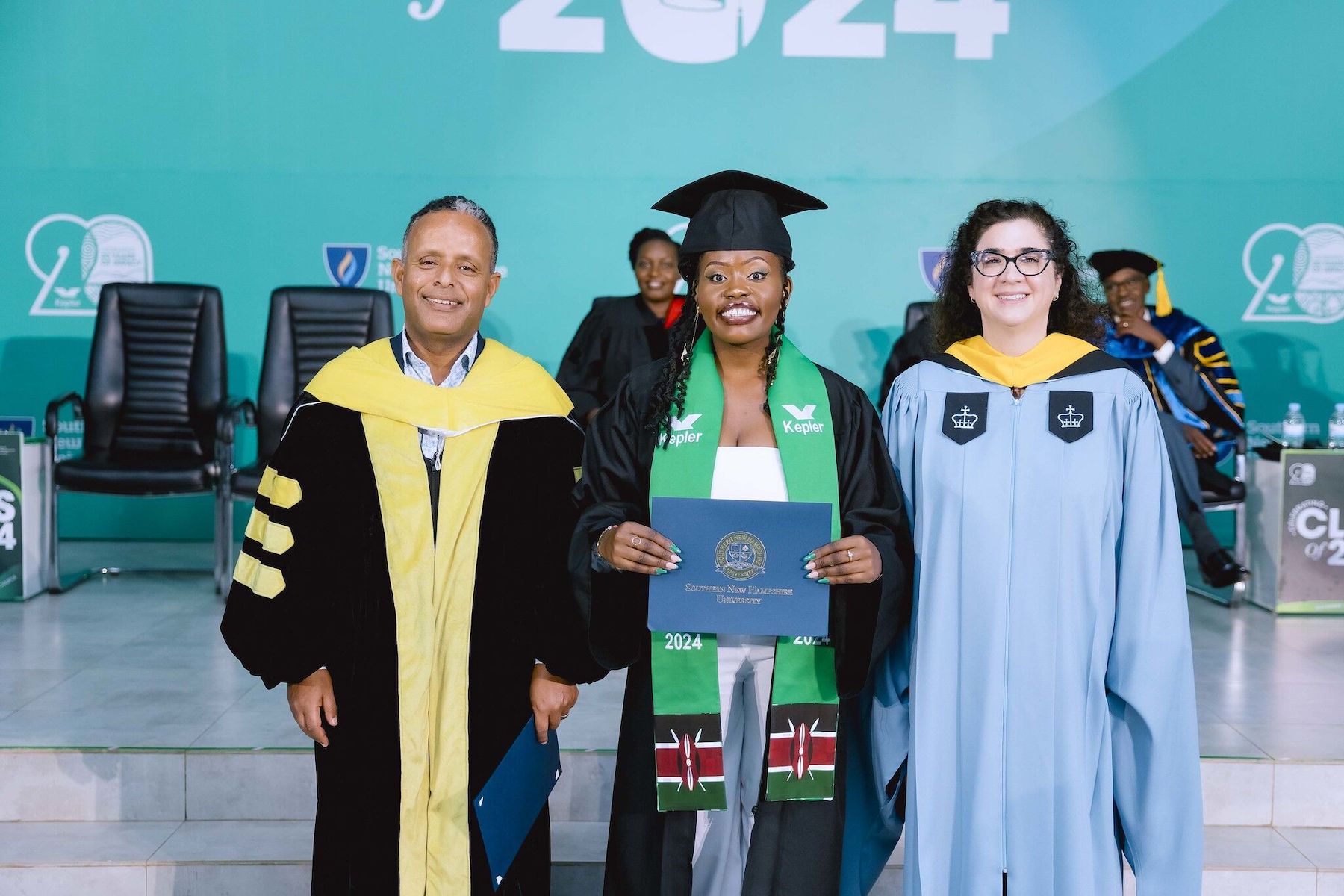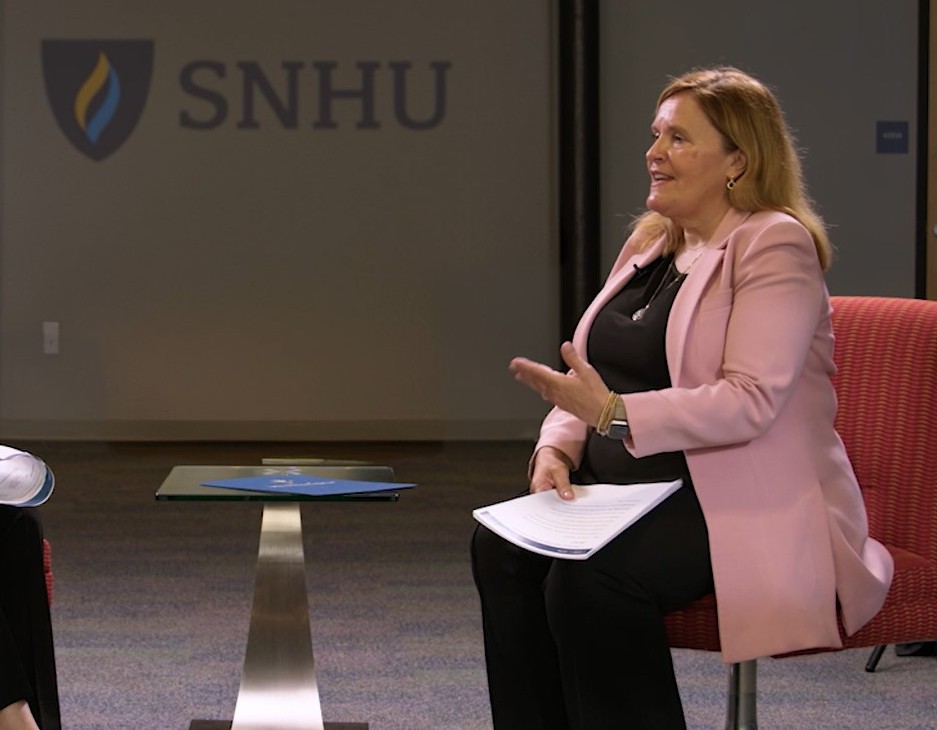Aimee was born in Kiziba Camp in 1998. Her parents are from DRC, and arrived at Kiziba in 1997 after a long journey – made while her mother was pregnant. Aimee started her
SNHU degree in 2017. This interview took place during the bridge phase, before beginning her degree.
I started in nursery school and then primary school in Kiziba. I never failed a class or had to repeat a grade. When I finished, I passed my national exam with grade 15. When came to secondary school, passed an exam at A level. Not easy to find a high school, because there was not one in the camp (but now there is one here). Struggled to find the money to find a high school. But there was a group that came here to the camp (nuns from college de salle) to choose two girls to send to secondary school in 2014. I was one of those two girls. I earned a place at College St Marie, they paid our school fees but we had to pay for materials. I struggled to find money for the materials. My mom taught nursery school and tried to send me some money. I tried to accept what I had. Even if I didn’t have a lot, I used what I had. I often had to rely on other Rwandans to help me.
What do you like about school and learning?
I like school because when you’re in school you get skills and experiences. You also can learn in some classes how to manage money.
What are you most interested in/excited about as you start your university experience?
I like so many things about our university here in Kiziba. I like that we study at our own pace. I also like that how you perform is how you get graded. I also like that we learn independently here. This is very different but makes us strong, it really helps us with critical thinking. This is because if you are only hearing the ideas of others, you do not learn how to formulate your own. I am formulating my own thinking here and I like that.
What scares you the most about starting university?
What I fear in starting university is that I have already had to study a lot of difficult lessons. When I get here, I heard so many stories about how hard Kepler and the SNHU degree can be, you have to work so hard. Now that I’m here, I am becoming more familiar and facing this fear.
What kind of support or help do you receive to address your fears?
The support I receive is learning coaches. They convince us to work hard, but more importantly they teach you how to prioritize your tasks and to reduce stress. When I feel like I am overwhelmed, I reach out to my learning coach to understand how to not stress myself out.
What are your goals after graduation?
My goal is to become a businesswoman. When I look at my community, they need so many things. If I get the capital, I think I can do a business in making clothes and in the fashion industry.
What does it mean to you to earn an SNHU degree?
To earn a degree from SNHU is something that is so great. When I compare this university with others, when we go to get jobs we will be more competitive. Everyone knows that this is the highest degree to get a job because of the high quality. When we apply for a job, we have the skills to get a job.
What do you want the world to know about refugee learners?
I want people in the world to know refugee peoples are just like others. Even though we are refugees, we all have something we can do. Some people on the outside think we have no capacity. People need to know that refugees have abilities to do the same things as others, even if they face more challenges. Refugees add value to the world.



